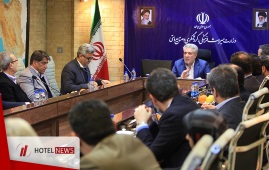
TEHRAN – The Iranian tourism minister on Monday said that the country will follow up on the issue of visa-free travel for mutual tourist groups with Russia at the upcoming [27th edition] Moscow International Travel & Tourism Exhibition (MITT), which will be held from March 17 to 19. “The Russian fair is very important [for us] so that we should have a strong and influential presence in this exhibition… One of the major issues is to pursue and finalize visa cancellation for Iranian and Russian group tours,” Ali-Asghar Mounesan said, CHTN reported. He made the remarks at a meeting with representatives of the private sector active in tourism projects. In December, Mounesan announced that Tehran was considering to allow Russian tourists to visa-free entry into the country to boost tourism after it granted the same privilege for some other nationals including Chinese and Omani passport holders. In 2017, Iranian President Hassan Rouhani and his Russian counterpart Vladimir Putin inked a preliminary visa-free agreement for certain tourist groups during their meeting in Moscow. Based on the agreement tour groups of 5 to 50 people heading to [easternmost parts of] Russia from Iran or vice versa are granted a visa-free stay of up to 15 days. MITT is the largest B2B travel & tourism trade show in Russia, attracting representatives of the tourism industry from Russia, regions and all over the world. According to organizers, a total of 22,289 travel industry professionals visited MITT in 2019. The participants ranged from the representatives of tour operators, travel agents to various other companies involved in the travel industry such as airlines, transport companies, hotels, and IT businesses.
Create: Feb 18, 2020 Edit: Feb 19, 2020 Regional News
Anticipated openings embody the company’s commitment to setting the highest standards for guest experiences in its growing global portfolio. Four Seasons Hotels and Resorts, the world’s leading luxury hospitality company, continues to expand its global portfolio with strategic openings of new hotels, resorts and branded private residences in the world’s most desirable locations. “An unwavering commitment to service and quality, a strong operating model and alignment with hotel owners who share our vision places Four Seasons in an enviable market position as we continue to grow our portfolio and strengthen our global development pipeline,” says John Davison, President and Chief Executive Officer, Four Seasons Hotels and Resorts. “As we begin a new decade, we continue to elevate the experience for our guests and enhance our product offering, affirming our passionate dedication to excellence and the industry-leading innovation that has defined our brand for nearly 60 years.” Working in concert with its partners, each new development authentically reflects the character of the destination, envisioning new ways for travellers as well as local residents to experience the world of Four Seasons. Recent innovations have included the company’s first standalone Private Residences, fully serviced by Four Seasons, in London at Twenty Grosvenor Square; a technology-led development with Comcast in Philadelphia; the Athenian riviera conversion of the iconic Four Seasons Astir Palace Hotel Athens; and the company’s first all-inclusive wellness retreat in Hawaii. Soon, having just opened its collection of traditional chalets at the foot of the Mont d’Arbois slopes with Les Chalets du Mont d’Arbois, Megève, the company that also introduced the first private jet experience will debut its first resort with an onsite winery in Napa Valley. Planned Openings in 2020 Six new openings are anticipated for 2020, including the return of Four Seasons to Bangkok with the glorious new Jean-Michel Gathy-designed landmark along the Chao Phraya River, debuting with nearly 300 stunning guest rooms and more than 350 beautifully appointed Private Residences. Also opening in the Asia-Pacific region early in the year is a third address in Japan, in the Otemachi area of Tokyo facing the Imperial Palace Gardens. In Europe, Four Seasons will debut in Spain for the first time with a new hotel in central Madrid, an assembly of several historic buildings now fully restored and reimagined, and highlighted by a rooftop restaurant by three Michelin-starred Spanish celebrity chef Dani García. Long established as the premier luxury hospitality brand in California with seven existing locations, Four Seasons continues to expand its presence in the northern part of the state with the spring opening of its second hotel in San Francisco, a soaring building in the Embarcadero district. Also scheduled for 2020 is the highly anticipated opening of a Four Seasons resort in Napa Valley, including a unique collection of Private Residences as well as Four Seasons first on-property winery in partnership with acclaimed winemaker Thomas Rivers Brown. Also in the United States, a recently announced hotel in New Orleans is expected to open in late 2020 in the city’s historic World Trade Center. 2019 Highlights Planned openings for 2020 follow an exciting year as Four Seasons celebrated a significant number of new openings around the world in 2019, including its first entry into Greece with the rebirth of the legendary Astir Palace Hotel in Athens; and the company’s return to Montreal with a stunning and sleek new hotel in the heart of the city’s Golden Mile, featuring the opening of the restaurant MARCUS with celebrity chef Marcus Samuelsson. Additional openings included a new hotel in the Garden City of Bengaluru, its second in India; the return of the brand to Philadelphia (located within the Comcast Center, the city’s tallest building) as well as a second hotel in Boston at One Dalton Street; a third address in Mexico, this time on the pristine beaches of the East Cape of Los Cabos; the company’s first all-inclusive wellness retreat in the fully refurbished Lodge at Koele on the Hawaiian Island of Lanai; and the completion of its full suite of historic chalet offerings in the French Alpine community of Megève. Looking Further Ahead In addition to announcing new properties in San Francisco and New Orleans, Four Seasons also unveiled plans for new hotels in Okinawa, Japan; Nashville and Minneapolis, USA; Cartagena, Colombia; and a second resort in Cabo del Sol, Mexico. The company also previously announced new Four Seasons projects in Dalian, China; Makkah, Saudi Arabia; Hanoi, Vietnam; and Caye Chapel, Belize. Also in 2019, Four Seasons announced plans for a new, fully customised Four Seasons Private Jet that will continue to take luxury travel to new heights as it continues the journey first introduced in 2015. A Growing Residential Portfolio Building upon Four Seasons 35-year history in branded residential following the opening of its first Private Residence in 1985, the company continues to strategically enhance its portfolio of exclusive Private Residences in markets around the world.
Create: Feb 9, 2020 Edit: Feb 9, 2020 International News
Ian Schrager and Marriott International‘s EDITION brand will open three new hotels this year, taking its sophisticated, minimalist-chic approach to luxury to Japan, Iceland and Dubai. Each EDITION is designed to feel exclusive to the city in which it is located. “All of the EDITION hotels are unique, original and one of a kind, embedded with a sense of time and place,” Schrager said in a statement. EDITION Hotels expects to open its first property in Japan with The Tokyo EDITION Toranomon, launching mid-2020. The 205-room property will house four food and beverage outlets, dedicated meeting and events spaces, a swimming pool, a fitness center and a spa, as well as EDITION’s much-loved Punch Room cocktail bar. Located in Tokyo’s upmarket Toranomon neighborhood, the hotel is expected to offer easy access to some of Tokyo’s most iconic sites, including the Tokyo Tower and Tsukiji fish market. Later in the year, The Reykjavik EDITION in Iceland will debut in the city’s downtown area. Adjacent to the prominent Harpa Concert Hall, the hotel is situated in both a vibrant and scenic part of Iceland’s historical capital, Marriott said. The hotel’s 250 rooms and suites will be complemented with a private rooftop, nightlife space and ballroom. In addition, the hotel is expected to offer guests and locals a diverse culinary offering with three restaurants and a café. EDITION will also expand its footprint in the Middle East, with the opening of The Dubai EDITION in late 2020, the second hotel in the UAE following last year’s launch of The Abu Dhabi EDITION. The property is slated to open in downtown Dubai, opposite the world-famous Dubai Mall. Plans for the hotel call for 210 rooms and suites, along with seven restaurants, swimming pools, pool deck dining, a spa and fitness center, in addition to event spaces with multiple meeting rooms and a ballroom. Since launching the lifestyle concept in 2007, EDITION currently operates 10 hotels in New York, London, Miami Beach, West Hollywood, Barcelona, Shanghai, Sanya, Abu Dhabi and Bodrum. Marriott has another 15 hotels in EDITION’s signed development pipeline which, upon opening in coming years, should more than double the brand’s footprint.
Create: Feb 8, 2020 Edit: Feb 8, 2020 International News
Frontline Employee Training Technique 16 Ingrain the Ten Feet Rule; During new employee orientation, it must be emphasized to all new employees that they must greet guests whenever they pass within 10 feet of them. It is never acceptable to not greet a guest. If the guest is on his/her mobile phone then a smile, a nod, and a wave can serve as the greeting. Technique 17 Help Employees to Remember Guest Names; During new employee orientation, everyone should be provided with some tactics regarding how to remember repeat guests’ names. Technique 18 Offer Body Language Training; During new employee orientation, all new frontline asso- ciates should be provided training regarding how to manage their body language cues when interacting with guests. Such cues include items such as smiling, eye contact, hands in pockets, etc. Technique 19 Incorporate Surprise Stories in Shift Huddles; In every daily shift huddle, one associate should be ran- domly selected to tell the group how s/he positively surprised a guest in the past 48 hours. Technique 20 Incorporate Encounter Stories in Shift Huddles; What guest did you meet today? In every daily shift hud- dle, one associate should be randomly selected to name a guest s/he met and tell the group something about the guest such as where they are from, their family, etc. This practice in the huddle will encourage the staff to talk to the guests. Technique 21 Conduct a Core Value Rotation in Shift Huddles; Every hotel should have between 8–10 core values that define the organizational culture. At the end of each daily shift huddle, one of the core values should be discussed so that each one is covered in an 8–10 day rotation. Technique 22 Conduct a Core Value Rotation in Shift Huddles; Every hotel should have between 8–10 core values that define the organizational culture. At the end of each daily shift huddle, one of the core values should be discussed so that each one is covered in an 8–10 day rotation. Technique 23 Use Foreign Language Greetings When Appropriate; In hotel properties with an international clientele, the front desk agents should know greetings in various languages and use them when appropriate. Technique 24 Ingrain the Drama Metaphor; All associates should be taught that they are on-stage whenever a guest can see or hear him/her. Such on-stage behavior applies to associates regardless of whether or not they are clocked-in for work. In other words, a guest perceives a uniformed employee as a representative of the hotel whether the employee has begun his/her shift or not. Technique 25 Train the ‘Again’ Effect; If an associate recognizes a guest as being a repeat patron, but cannot recall his/her name, the associate should be trained to say ‘nice to see you again.’ Inserting the word ‘again’ helps strengthen the relationship between the guest and service provider. Technique 26 Express Gratitude to Guests; A guest must feel appreciated and cannot be thanked too much. Associates should be trained to thank them for their business throughout their stay: “Thank you for staying with us”, “Thank you for dining with us”, etc. Technique 27 Teach Proper Response to ‘Thank You’; All associates should be trained to reply with ‘thank you’ when a guest says ‘thank you’. Intense competition in the hotel sector mandates that guests feel appreciated for their business. Replies to ‘thank you’ such as ‘no problem’ do not communi- cate appreciation or leave a lasting impression. Technique 28 Set the Tone During the Reservation Process; When a guest makes a reservation via the hotel, it creates a great opportunity to get them excited about coming to the hotel. The tone of the reservationist’s voice is very important and has the opportunity to start the exceptional guest service before they even arrive at the hotel. Reservationists should be trained to speak with enthusiasm, so the guest will feel it too. This enthusiasm sets the tone for their stay. Technique 29 Smile While on the Telephone; A mirror should be hung in front of all hotel reserva- tionists and they should be trained to check their smiles in the mirror when conversing with potential guests. Smiling changes voice tone and inflection. Technique 30 Do Not Unnecessarily Disclose Overbooking; Reservationists should be trained never to tell guests that they are overbooked on a requested night. Simply stating that the hotel is full would suffice in the conversation. Overbook- ing is viewed by many consumers as an unethical and greedy practice. Technique 31 Use Hospitable Responses to ‘How are you?’; If an associate is asked by a guest ‘how are you?’ the asso- ciate should not respond that s/he is happy because s/he is ‘off tomorrow.’ Expressing happiness because of an upcoming separation from guests does not communicate a hospitable culture. Technique 32 Tell Jokes and Riddles to Children When Appropriate; All frontline associates should be instructed to learn at least one children’s riddle that can be told when children move through their areas accompanied by their parents. A basic Internet search reveals numerous websites listing children’s jokes and riddles. Technique 33 Use Strong Telephone Greetings; An associate’s name is important to a guest. All associates should be trained to state their names when they answer the telephones in their departments. Technique 34 Make Guests the First Priority; Who’s more important, the manager or the guest? The entire management team should understand that when an employee is engaged with a guest, the guest is most important. Likewise, some employees think that “Oh there is a manager, I better acknowledge him/her.” Both management and staff should be taught to focus on the guest first. Technique 35 Check Websites for Accuracy; During off-peak times, front desk associates should be trained to routinely check websites that describe the hotel for accuracy. Are the hours of operations correct for the various departments? Are the hotel’s features and amenities listed correctly? Technique 36 Learn the Language of Guest Segments Do you know who your guests are? If you are near a uni- versity, medical center, or in a leisure market—bring in “spe- cialists” to talk and train the hotel staff on what to say, ask and explain. These specialists normally will do it free of charge. The more knowledge your staff has, the easier it is to provide a more personalized style of service. Technique 37 Eliminate Hairs; All housekeepers should be trained that the most com- mon cleanliness problem in the guestroom experience is hair in the bathroom (on floor, tub, or vanity). Technique 38 Offer Luggage Assistance; All hotel staff should be trained to spot guests carrying bags and to tell the guests that they would like to help carry the items for them. If the guests decline, the service offered signals care and attention to detail. To be continue...
Create: Feb 1, 2020 Edit: Mar 31, 2020 Hotel Management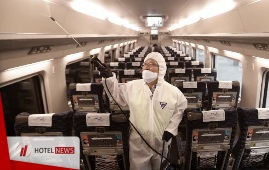
On February 15th, 2003, the first group of 67 Chinese officially travelling for leisure arrived in Germany, based on the ADS Approved Destination System agreement China and Germany signed the year before, second in Europe only to the island state of Malta, while for the rest of the Schengen Area the ADS agreement came only into force in September 2004. Your humble editor had stopped a few years earlier to be an inbound tour operator for Chinese delegations and had just finished the first semester as a tenured university professor. Witnessing the high expectations of my former colleagues, all buying coaches, employing additional staff and moving into bigger offices, I wondered if I had taken the wrong decision to opt out of the business just before the biggest bonanza ever for the German China inbound tour operators, looking forward to enjoying a year without competition in Europe. Unknown at the time, in November 2002 SARS (severe acute respiratory syndrome) started in Guangzhou and spread to many countries in the world. On March 15th, 2003, the WHO issued a global alert about a new infectious disease, advising against any unnecessary travel to and from East Asia. On April 2nd, Chinese officials finally began reporting the severity and extent of the SARS outbreak. As a result the second quarter of 2003 saw almost no Mainland Chinese citizen arriving in Germany, pushing several inbound tour operators close to bankruptcy. For the whole year, the number of arrivals however reached the level of 2002, and 2004 saw an increase of almost 40%, as many of the trips to Germany influenced by the SARS crisis were only postponed, not cancelled. Globally the same happened: From 16.6 million in 2002 the number of outbound trips jumped to 20.9 million in 2004 despite the three-month hiatus. With the yet not fully named 2019-nCoV, things could turn out in a similar way, based on what is known until now. On the one hand the disease is spreading much faster, given the much improved domestic and international transport infrastructure available in comparison to 2003, on the other hand the Chinese government reacts in a much different way to the crisis. Among many others, starting from the 27th of January, all group travel from China has to cease. Individual travellers however will have a bigger incentive than before to go abroad. The biggest difference is clearly the fact that in 2003 outbound tourism was the least concern except for those few directly involved during the SARS crisis. In 2020 there are already articles published discussing the fate of the tourism industry of Thailand, Japan and other countries if the main source market China implodes. Via an open letter of the CATS China Association of Travel Services published on the 26th, the international partners have been asked to “introduce relative refund and changes policies to minimize Chinese tourists financial loss”. How much this will remain a wish or will become a demand, is one of the many unknown factors in the 2019-nCoV development. The main concern remains of course to minimize the loss of life in China. In all previous cases, being it SARS, MERS or the Lehman Brothers global economical crisis, demand bounced back stronger than before after two or three months. So it will be a good idea to use the time of the slowdown to train everybody involved in servicing Chinese customers, using the brand new CTT China Tourism Training. Let’s hope that the Year of the Rat will have a better ending than this dire beginning and that all our readers, their colleagues, family and customers will stay healthy.
Create: Jan 31, 2020 Edit: Jan 31, 2020 International News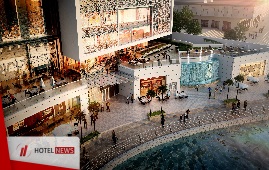
IHG announced the opening of Crowne Plaza Dubai Marina, part of the newly designed flagship properties launching globally offering a new distinctive stay experience, designed to meet the needs of the modern business traveller. Crowne Plaza hotels & resorts is one of the world’s largest upscale hotel brands, with an increasingly strong reputation for being the first choice for business-class stays. Designed with the modern traveller in mind, Crowne Plaza Hotels & Resorts know that business travel isn’t just about business – it’s about balancing work and life so guest feel fulfilled and successful. This opening represents a landmark moment for Crowne Plaza Hotels & Resorts in the Middle East and marks the beginning of ambitious expansion plans for the brand in the region. With 24 Crowne Plaza hotels (6,836 rooms) open in the Middle East (GCC, Levant and Egypt) and a further eight (2,738 rooms) in the pipeline – three of which are in the UAE and three in KSA, the brand is perfectly positioned to cater for a rising number of regional business events and travel to the Middle East. Within only a 20-minute drive to Expo 2020 Site, close proximity to important business hubs including Jumeirah Lake Towers, Jebel Ali, Dubai Media City and Dubai Internet City, Crowne Plaza Dubai Marina is set to become an important hub for business travelers in the lead up to Expo 2020. Georges Farhat, General Manager, Crowne Plaza Dubai Marina said: “Our flagship property in Dubai Marina is an exciting addition to the Crowne Plaza portfolio in the region. As a flagship property, the hotel will feature a new modern design philosophy which better meets the needs of our guests: productivity, advanced restoration and inspiration, seamlessly blending work and play. It features a new approach to lobby design, which can be used for co-working or relaxing. Its location makes it ideal for guests looking to stay ahead of their game while travelling for business; from a morning run on the marina waterfront walkway to after work chilling out in the heart of one of Dubai’s most exciting districts.” Located primely on the banks of Dubai Marina with direct access from the promenade, the 24 storey building occupies 3,037 square meters and boasts 273 stylish and ultra-modern hotel rooms including 61 Club Rooms and 32 suites. Offering panoramic views over the water, these rooms come with a number of technology-driven features to provide guests with a harmonious stay experience day and night. A spacious club lounge is located on the fourth-floor exclusively for Club guests. Crowne Plaza Dubai Marina boasts state-of-the-art meeting facilities including the Marina’s first ballroom with natural light. Located on the second floor, the spacious meeting and conference rooms occupy 460 square meters of space and are fully-equipped with advanced audio-visual technology for a seamless working experience. The property comes with a number of notable technologies driven features, designed to answer the growing trend in flexible work and life preference, and people’s desire to work from anywhere. This includes an efficient GRMS system (Guest Room Management System) which intuitively manages guest preferences including temperature, lighting and heating through a touch panel. All rooms come with a built-in Media Hub which allows guests to connect to a surround sound system with their devices using Bluetooth meaning guests can even listen to their own playlists in the bathroom. Screen mirroring technology allows guests to display content from their devices on the TV seamlessly. Crowne Plaza Dubai Marina offers a more social take on traditional business hotels, complete with six unique dining concepts including the signature Thai restaurant ‘Charm Thai’ located on the marina Promenade level with an expansive al fresco terrace overlooking the Marina Waterfront. Lo+Cale is the hotel’s main all-day dining restaurant featuring an array of international cuisines positioned on the ground floor alongside Connexions, the hotel’s lobby lounge serving coffee and ‘grab’n’go’ bites. Hive is the hotel’s lobby bar and Nara are the outdoor Arabic style shisha lounge. On the 4th floor is Aqua Marina, the sophisticated pool bar providing bites and refreshing cocktails for guests to refresh and unwind throughout the day. Health and fitness enthusiasts will enjoy a fully equipped state-of-the-art gym open 24 hours a day, seven days a week, in addition to the hotel’s new amenities with ecofriendly, all natural with no paraben products.
Create: Jan 31, 2020 Edit: Jan 31, 2020 International News
A Life Without Reservations: As a new decade started upon Rosewood Hotels & Resorts, the ultra-luxury hospitality company is intensely focused on the global expansion of its branded residential business, Rosewood Residences. With 15 existing residential projects globally and an additional 14 in the pipeline, Rosewood is intent on continuing to grow its residential business with a guest-centric approach, while staying true to the brand's A Sense of Place® philosophy. This strategy has been at the core of the brand's remarkable hotel growth and will remain central to the company's ascent as the preferred option in luxury living. Rosewood Residences occupy the most sought-after locations at select Rosewood Hotels & Resorts properties around the world. Perhaps the best-known precursor to today's branded residential lifestyle is The Carlyle, A Rosewood Hotel, located on New York's Upper East Side. Conceived in the 1930s, few hotels have risen to global prominence like The Carlyle, which was known as the "New York White House" during the Kennedy era in the 1960s. Rosewood Hotels & Resorts is building upon the success and heritage of its existing properties through the development of new hotels and residences across the globe. "Approximately 50 percent of Rosewood's pipeline properties have a residential component and we expect this ratio to increase over the coming years," said Karl Bieberach, chief development officer for Rosewood Hotel Group. "As we set off into a new decade, we are expanding our residential resources in order to better support our owners and developers in their sales and marketing processes while strengthening relationships with buyers of Rosewood-branded residences. We remain focused on delivering truly differentiated products for Rosewood Residences owners, who, by choosing to live a Rosewood-branded lifestyle, are among our biggest brand loyalists." A Residential Vision for a New Decade Rosewood Hotels & Resorts residential offerings include two main categories; for-sale residences and for-lease serviced apartments. The brand's unrivalled design ethos and genuine residential style offer a unique opportunity to enhance the way affluential explorers live, by making a larger array of residential offerings available, regardless of category. In addition to residential components within mixed-use hotel projects, Rosewood Hotels & Resorts plans to embark on stand-alone residences. "We are excited to continue the growth and development of Rosewood Residences, a sector of the brand beloved by our most loyal Rosewood guests," said Irene Hoek, vice president of global residential development for Rosewood Hotel Group. "Within each ultra-luxury Rosewood Residence, the unique culture of the dynamic locale is embraced and showcased from start to finish. This model will continue to be at the forefront of all future developments we lead across the globe." A Life Without Reservations Whether clients rent or own a Rosewood-branded residence, living the Rosewood lifestyle comes with perks and benefits that are unmatched in hospitality. Aside from a myriad of luxury amenities and the highest level of security, the Rosewood lifestyle unlocks the opportunity to savour more of life's precious moments. From taking care of party planning, running errands, organizing social agendas and home repairs, the qualified team at Rosewood Hotels & Resorts will oversee the residences' needs. Complementing the brand's renowned, intuitive service and recognizing the most loyal owners, Rosewood Hotels & Resorts has launched Rosewood Reserve, an exclusive program available to residence owners, offering advantages and benefits at all properties across the globe. Benefits of Rosewood Reserve include preferred rates on rooms, food and beverage and spa, room upgrades, and additional VIP courtesies including access to a global concierge to assist with all travel-related requests. Rosewood Residences span a collection of unique properties in dynamic cities with for-sale residences and serviced apartments such as at Rosewood Abu Dhabi, as well as within quiet vacation destinations like Tuscany, Italy at Rosewood Castiglion del Bosco. Rosewood Hotels & Resorts is enhancing the portfolio with the development of residences around the world.
Create: Jan 31, 2020 Edit: Jan 31, 2020 International News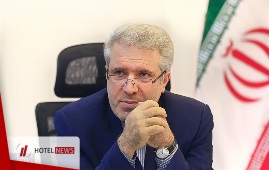
Iran’s tourism minister on Saturday issued a statement, inviting all travelers and holidaymakers to visit the ancient land, saying that the country-size guesthouse is wholeheartedly ready to receive tourists from around the world. Ali-Asghar Mounesan emphasized that the Iranian government is trying its best to host incoming tourists by improving tourism infrastructure, offering attractive and pocket-friendly packages, as well as incentives such as visa waivers or 90-day visas on arrival. Mounesan’s statement comes weeks after the country’s tourism suffered losses in the wake of recent tensions in the region by mistakenly downing of a Ukrainian airliner, with 176 people aboard, by the Islamic Revolution Guards Corps (IRGC) air defense system in Tehran airspace. “Nowadays, the world is even more involved in fast and surprising upheavals and ups and downs as a result of unprecedented progress in technology and industry. As such, the modern human is also influenced by the urban, mechanical life and his soul needs some refinement and relief,” the statement reads. “In such a situation, only travel and tourism can give us relief, joy, and sympathy and provide us with unforgettable experiences and memorable coexistence. In fact, tourism can be thought of as a familial or friendly gathering, the pivotal contents of which are kindness, cooperation, and synergy. In this chaotic era, tourists are like a delightful breeze endearing our souls and uniting all the people from around the world, regardless of their race, country, language, and beliefs.” Referring to the advantages of visiting the country, the minister explained, “With a deep and practical faith in this attitude, the Iranian government is trying its best to pave the way for incoming tourists and this is why there is a significant growth in tourism infrastructure in our country. In this regard, some incentives such as visa waiver, 90-day visa on arrival, standard residence services, attractive tourism routes and packages, and cheapest and most secure tours to Iran along with the last international tourism standards have enabled us to experience a 53% growth in our inbound tourism, winning the first place in the world in this regard. In addition, when it comes to the prices, Iran has the most competitive prices for tourism in the world and has emerged as a new phenomenon in the world of tourism, attracting the attention of many countries.” “Even if we disregard all that has been said, the unique tourist attractions of Iran are a good reason to have a journey to the land of history, civilization, and nature. With 24 UNESCO World Heritage sites, 34,000 nationally registered heritage sites and 600 active museums, Iran has a huge capacity to receive international tourists. In addition, high security, cheap tours, premium travel facilities, hospitable people, numerous historic and natural treasures, unique ecotourism facilities, diverse tourism packages (historic-cultural tourism, sport tourism, marine tourism, food tourism, medical tourism, etc.), interesting rituals, and diverse handicrafts and traditional arts provide enough reasons to visit Iran.” Pointing to unique and unparalleled beauties of Iran, Mounesan said, “The rich history and civilization of this land, the numerous and spectacular tourist attractions, four-season weather, and high cultural and ethnic diversity have made an invaluable treasure of Iran and put this country in the top 10 tourist destinations in terms of tourism, cultural and natural attractions. Astonishing mountains, breathtaking glaciers, beautiful volcanos, pristine forests, green foothills, delightful lakes, springs and waterfalls, picturesque beaches and wonderful islands, historical sites and distinct architecture, globally registered cities and villages, diverse and colorful handicrafts, delicious traditional cuisine and organic, healing drinks, etc. are only a small part of the beauties you can visit while staying in Iran.” “With such advantages, each day the beautiful and safe cities of Iran are hosting thousands of tourists from different countries, having enjoyed the unique experience, most of whom decide to return and bring new fellow travelers with them.” “Hereby I invite all the tourists from around the world to visit Iran during these last months of the Persian year, as well as the spring, and experience a distinct journey to the land of history and civilization,” the minister concluded. Mounesan said earlier this month that the country’s tourism sector has suffered a major setback but it will certainly return to “normal”. On Thursday, he unveiled an action plan, aiming to increase and improve [international] interactions for introducing Iran and clarifying its safety conditions to the target countries. Under the 2025 Tourism Vision Plan, the country aims to increase the number of tourist arrivals from 4.8 million in 2014 to 20 million in 2025.
Create: Jan 26, 2020 Edit: Jan 27, 2020 Regional News
INTRODUCTION With new technology trends such as the internet of things (IoT), many businesses have been able to improve their operations as well as make them more up to date. In the hotel and hospitality industry, technology has helped make many hotels and resorts more efficient as ones that are capable of providing better service for their guests. Technology in the hospitality industry has been able to capitalize on the internet of things (IoT) by providing a better user experience for guests. Today, guests can make reservations through an application and schedule their stay with their smartphones. Along with the internet of things, technology in the hospitality industry has also included new and more advanced software. The new hospitality technology has greatly advanced the operations of hotels in terms of allowing guests to get rooms and gain access to all of the available services offered. Today, the new hospitality technology can help hotels schedule events more efficiently, process room reservations and monitor revenues and financial transactions more easily. The development of hotel and hospitality software has enabled hotels to be even more organized than they have been in the past. As a result, they are even more likely to provide more satisfaction for their guests consistently. SMART GUEST EXPERIENCES Today many hotels have followed some key trends that have allowed them to better meet the unique needs of their guests. Along with using cloud-based software, hotels nowadays have become more personalized as they are even more focused on helping their guests have the best experience possible when staying at their establishment. In recent years, there has been a tech explosion in the hotel and hospitality industry. The use of cloud-based software has allowed hotels to more efficiently manage their transactions and daily tasks. It has also allowed guests to rely on apps and mobile websites to make requests and get the services that they need for their stay. This technology has helped make a modern hotel into a smart hotel as they have become more user-friendly. Another trend that has contributed to the development of the modern smart hotel has been seamless technology. This includes features such as mobile check-in and digital concierge services. Today, hotels provide high tech cards that detect the presence of a guest and open the door before they even get to it. This has provided guests with more convenience as they can just walk into their room instead of sliding a card into it. Mobile check-ins have enabled guests to process their arrival digitally and avoid relying on a front desk clerk to complete this task for them. As a result, both the guests and the hotel workers can save a lot of time. 7 TECH TRENDS YOU CAN’T IGNORE IN 2020 In the past hotels were just places for people to sleep and unwind during trips when they were away from home. However, there has been a lot of change in the industry during the past several years. Today, hotels have become places where several activities take place. These include seminars, business meetings, and conferences. There have been many additional hotel technology trends that have drastically changed the industry. 1. MOBILE DEVICES AS DOOR KEYS One of the most recent hotel technology trends has been the development of mobile devices as door keys. Hotels today provide cards that are items that put data onto a guest’s mobile device. With this card, guests can more easily access their rooms and other areas of the hotel such as the gym and spa. These cards can also be visually scanned to process entry into these areas of the hotel. 2. SERVICE AUTOMATION In recent years hotels have allowed guests to serve themselves. Most guests prefer to use technology rather than interact with humans. As a result, the development of remote check and check out has allowed guests to use apps to complete these menial tasks. Since the new technology has created more automation, both guests and hotel workers can spend more of their time focusing their efforts on other activities. 3. FIXED MOBILE CONVERGENCE Over the past few years, room phones in hotels have had a reduced role in use among guests. However, the room phones of the present and future will often provide a larger role in terms of connectivity. Today, a guest can use their mobile phone to control things such as the television, the sound system and the blinds of their room. They can also use the mobile phone to request wake up calls, get informed about a visitor’s arrival and requesting a cab or driving service to transport them around town. 4. GUEST APPS The new technology in the hotel industry has resulted in new guest apps. These are options that allow guests to receive information on new hotel deals, notifications about hotel services and also loyalty programs. The guest app can also provide an itinerary to an event as well. 5. BANDWIDTH With the development of technological devices such as laptops, smartphones, and tablets, the demand for bandwidth is very high. As a result, hotels have significantly increased the amount of available bandwidth to accommodate guests who frequently access the internet for the devices. 6. LOCATION-BASED SERVICES New location-based services have also emerged as a key to the advancement of technology in the hospitality industry. With location-based services, guests can locate hotel workers and staff more easily. As a result, they can more efficiently get the assistance they need whenever necessary. 7. TECH LOUNGES Another new trend in the hotel and hospitality industry has been tech lounges. With tech lounges, hotels can provide guests with a public space to use technological devices and complete tasks using technology. The new tech lounges have become a preference among many guests in recent years. CONCLUSION Like all other industries, the hotel and hospitality industry has undergone many significant changes over the past few years. Hotels have made these changes with the help of the latest hospitality and travel software. With this new hospitality and travel software, hotels have been able to help themselves operate more easily as well as satisfy the needs of their guests. During the last few years, hotels have introduced several technology options that include automated check-ins, staff location services, mobile door keys, and tech lounges to provide a more fulfilling experience for guests.
Create: Jan 26, 2020 Edit: Jan 26, 2020 International News
Unarguably, the climate has noticeably changed in recent years. Weather patterns are more erratic and less predictable. Along the eastern side of North America, this currently means less snow. But for other places, like Australia, the perilousness of the situation may result in swift corrective legislation. Despite any rhetoric or debate, the fact is that every hotelier needs to recognize that being a good corporate citizen means doing your part. At all costs, you want to avoid being labeled a violator of our planet’s ecosystem, especially when there are many simple yet visible steps that you can take to reduce both your carbon and plastic footprint. I’ve arranged the following checklist in order starting with those items that have the least cost or minimal disruption to your operations. Importantly, I am not advocating that you in any way ‘badge’ these activities as doing your share, as there is always more that we all can do. 1. As a very basic requirement, separate guestroom waste into trash and recyclable materials. Many properties I’ve visited still do not consider this worthwhile. 2. Importantly, if it is separated by the guest, it is a real faux pas to have your housekeepers combine the trash on their laundry carts. 3. If you have not already eliminated plastic straws, shame on you! While paper straws are less elegant and arguably a less efficacious substitute, the simple fact is that plastic straws are no longer acceptable. 4. Eliminate plastic drink swizzle sticks. There are alternates here made of bamboo and wood. Yes, they cost a little more. But you’ve gone through the process of eliminating plastic straws, so why would you not go that extra step? 5. Replacing plastic water bottles with glass or recyclable aluminum cans. The single use plastic bottle should be outlawed. But with manufacturers pumping out a million plastic water and soft drink bottles a minute – albeit with many producers now using a large share of recycled plastic in the process – recognize this as being more of a symbolic gesture because plastic is a visible and emotional enemy of environmental health. 6. Plastic laundry bags? I know they are not used by most guests, but while you’re expunging your property of plastic waste, consider a move to cotton bags or even paper. There’s a marketing opportunity here when the bags are attractive and reusable. 7. All other forms of plastic in the restaurant should also be on the chopping block. If you give out plastic cutlery or utilize plastic wrappers, there are alternatives available. Moreover, any made from Styrofoam needs to be looped into this conversation. 8. Single use plastic shampoo, conditioner and body gel bottles are clearly sending the wrong message. Many different dispenser systems are readily available, with the one-time dispenser expense easily offset by bulk amenity purchases. 9. A countertop liquid soap pump dispenser in guest washrooms is a way of reducing waste through the elimination of soap bars and their often-plastic wrappers. Again, there are some very alluring units that can be purchased. 10. In-room coffee Keurig and Nespresso both offer complementary recycling programs for their used coffee dispensers. Reach out and learn how to make this happen. 11. Smart thermostats that switch down heat and air conditioning when the room is not occupied can pay for themselves through effective power savings. 12. In Europe, it is not unusual to require guests to insert their key cards into a slot that activates the lights in their room. Not recommended for a retrofit due to cost, but if you’re planning a major renovation or added rooms, this should be considered. 13. Motion detectors that activate indoor garage lighting are logical, while using the same strategy for hallways is probably not a great approach! 14. If you have a courtesy corporate car, consider an electric vehicle, or at a minimum a hybrid. Although likely more expensive than any gas-guzzling counterpart, it’s the statement you are making that’s vital. 15. Make sure all of your air conditioning and refrigeration units operate on HFC-134a instead of freon which is known to damage the ozone layer. Or if you must, make sure that the freon is properly disposed. 16. Lastly, for those of you still operating any lighting that is not LED, it’s time to finally pull yourself out of the 20th century.
Create: Jan 26, 2020 Edit: Jan 26, 2020 International News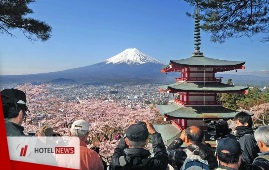
Following the news that the number of international tourists is set to reach a record in 2022 and no country will see a greater increase in international arrivals than Japan. Johnatan Vandesquille, Analyst, Travel & Tourism, at GlobalData, a leading data and analytics company, offers his view on the situation: “The tourism industry is forecast to maintain steady growth up to 2022, driven by the rise of middle and upper classes in emerging economies, as well as the development of new destinations. “GlobalData forecasts Japan to experience growth in the number of international tourists at a compound annual growth rate (CAGR) of 11.3%, the largest increase among the countries observed. This growth can be attributed to the overall success of the 2019 Rugby World Cup and the positive impact of the Olympics, which are being held in Tokyo this year. These events have helped the development of tourism infrastructure and will increase the visibility of the destination in the near future. “France is expected to remain the most visited country in the world with 99.6 million tourists in 2022, but more than a year of civil unrest and the potential impact of Brexit (the UK being its main source market) will slow tourism growth and the country may fall short of its objective of 100 million visitors, originally set for 2020. “Diplomatic tensions are the main obstacle to international growth, as illustrated by South Korea and China, which are both currently experiencing issues with their main source markets. “However, these tensions seem to benefit Vietnam, the fastest growing tourism market in South-East Asia, which is expected to capitalize on the overall popularity of the region and the projected exponential development of South Korean outbound tourism.”
Create: Jan 26, 2020 Edit: Jan 26, 2020 International News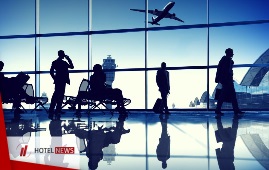
A 4% increase on the previous year which is also forecast for 2020, confirming tourism as a leading and resilient economic sector, especially in view of current uncertainties. By the same token, this calls for such growth to be managed responsibly so as to best seize the opportunities tourism can generate for communities around the world. According to the first comprehensive report on global tourism numbers and trends of the new decade, the latest UNWTO World Tourism Barometer, this represents the tenth consecutive year of growth. All regions saw a rise in international arrivals in 2019. However, uncertainty surrounding Brexit, the collapse of Thomas Cook, geopolitical and social tensions and the global economic slowdown all contributed to a slower growth in 2019, when compared to the exceptional rates of 2017 and 2018. This slowdown affected mainly advanced economies and particularly Europe and Asia and the Pacific. Looking ahead, growth of 3% to 4% is predicted for 2020, an outlook reflected in the latest UNWTO Confidence Index which shows a cautious optimism: 47% of participants believe tourism will perform better and 43% at the same level of 2019. Major sporting events, including the Tokyo Olympics, and cultural events such as Expo 2020 Dubai are expected to have a positive impact on the sector. Responsible growth Presenting the results, UNWTO Secretary-General Zurab Pololikashvili stressed that “in these times of uncertainty and volatility, tourism remains a reliable economic sector”. Against the backdrop of recently downgraded global economic perspectives, international trade tensions, social unrest and geopolitical uncertainty, “our sector keeps outpacing the world economy and calling upon us to not only grow but to grow better”, he added. Given tourism’s position as a top export sector and creator of employment, UNWTO advocates the need for responsible growth. Tourism has, therefore, a place at the heart of global development policies, and the opportunity to gain further political recognition and make a real impact as the Decade of Action gets underway, leaving just ten years to fulfill the 2030 Agenda and its 17 Sustainable Development Goals. The Middle East leads The Middle East has emerged as the fastest-growing region for international tourism arrivals in 2019, growing at almost double the global average (+8%). Growth in Asia and the Pacific slowed down but still showed above-average growth, with international arrivals up 5%. Europe where growth was also slower than in previous years (+4%) continues to lead in terms of international arrivals numbers, welcoming 743 million international tourists last year (51% of the global market). The Americas (+2%) showed a mixed picture as many island destinations in the Caribbean consolidated their recovery after the 2017 hurricanes while arrivals fell in South America due partly to ongoing social and political turmoil. Limited data available for Africa (+4%) points to continued strong results in North Africa (+9%) while arrivals in Sub-Saharan Africa grew slower in 2019 (+1.5%). Tourism spending still strong Against a backdrop of global economic slowdown, tourism spending continued to grow, most notably among the world’s top ten spenders. France reported the strongest increase in international tourism expenditure among the world’s top ten outbound markets (+11%), while the United States (+6%) led growth in absolute terms, aided by a strong dollar. However, some large emerging markets such as Brazil and Saudi Arabia reported declines in tourism spending. China, the world’s top source market saw outbound trips increase by 14% in the first half of 2019, though expenditure fell 4%. Tourism delivering ‘much-needed opportunities’ “The number of destinations earning US$1 billion or more from international tourism has almost doubled since 1998,” adds Mr Pololikashvili. “The challenge we face is to make sure the benefits are shared as widely as possible and that nobody is left behind. In 2020, UNWTO celebrates the Year of Tourism and Rural Development, and we hope to see our sector lead positive change in rural communities, creating jobs and opportunities, driving economic growth and preserving culture.” This latest evidence of the strength and resilience of the tourism sector comes as the UN celebrates its 75th anniversary. During 2020, through the UN75 initiative the UN is carrying out the largest, most inclusive conversation on the role of global cooperation in building a better future for all, with tourism to be high on the agenda.
Create: Jan 26, 2020 Edit: Jan 26, 2020 International News
